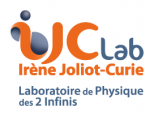
How antimatter interacts with gravity is one of the key questions in physics which are simple enough to ask, but incredibly difficult to answer, especially if the answer is supposed to be rooted in experimental proof. In the case of this particular question, the difficulty is at least two-fold: firstly, due to the infinitesimal strength of the gravitational force with respect to the electromagnetic one, the latter being a constant influence (to be read perturbation) in a physics laboratory; secondly, due to the fact that the object of study, antimatter, is incredibly difficult to produce and control in a way that would render a gravity-sensible experiment possible. Nevertheless, the GBAR experiment (Gravitational Behaviour of Antihydrogen at Rest) located at the Antiproton Decelerator of CERN aims to overcome all these obstacles and produce a measurement of the eponymous quantity, g-bar, the gravitational acceleration of antimatter on Earth. Recently, David Lunney from IJCLab and Pauline Comini from Irfu, both researchers of the GBAR collaboration, have joined Nicolas Martin on France Culture to talk about the experiment. The interview can be followed here. With the occasion, Corentin Roumegou, PhD student of IJCLab working with David Lunney, presented his doctoral research project on the production of antimatter for the GBAR experiment at CERN.






